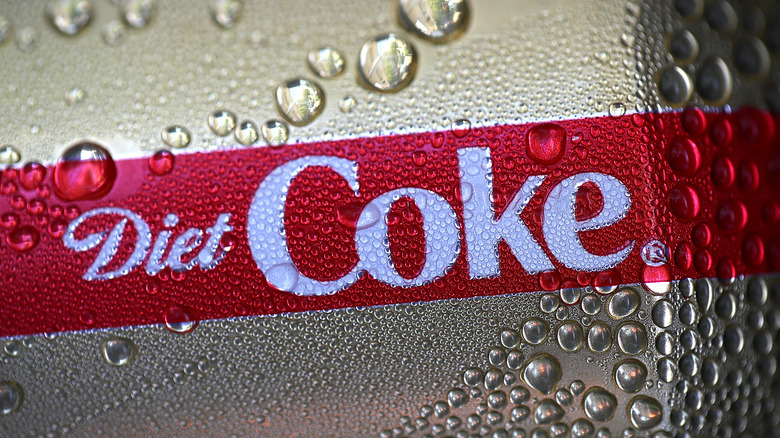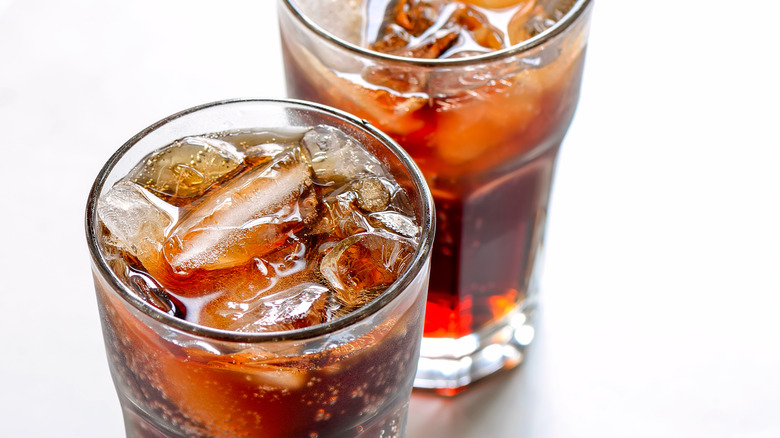The Real Reason Diet Coke Cravings Are So Powerful
Ever stop and ponder how many times a day, a week, a month, a year, etc. you find yourself saying, "and a Diet Coke"? For lunch, it's a no-brainer. You don't even have to think about it: You'll have a grilled chicken, dressing on the side, "and a Diet Coke." Late night burgers with friends? With well-done fries "and a Diet Coke," please. The only reason you don't drink even more of the stuff, come to think of it, is that you have made a pledge to yourself that you won't actually keep it in the house. Why? Because, well, it's Diet Coke, and you can't go back in time to before all those studies suggesting that not only is it a sub-par way to hydrate, but also that it might even make you gain weight despite having zero calories. Now, making matters worse, you've been hearing that Diet Coke is powerfully addictive.
And you've been hearing correctly, according to nutrition counselor Joan Ifland, Ph.D., and founder of Food Addiction Reset, who spoke to Mashed about why it is that your Diet Coke cravings are so powerful.
Diet Coke is addictive in multiple ways
When we asked nutrition counselor Joan Ifland what it is that makes our cravings for Diet Coke just so powerful, she reassured us that it does not reflect any sort of personal failure on the part of the addicted (cough, looking innocently off to the side). Rather, Diet Coke's marketing was designed to trick us into feeling not ONLY that we need some now, but that getting some will actually do our bodies good.
"The soda companies are adapting a tactic used by the tobacco companies. Tobacco addressed concerns about the tar in cigarettes by introducing a low-tar version. Unfortunately, the low-tar version required smokers to inhale more deeply and hold the smoke longer in order to extract the nicotine needed to satisfy the nicotine addiction. This actually promoted cancer rather than reducing the cancer risk as was implied in the advertising." Similarly, Diet Coke and other diet soda manufacturers are positioning their product to convince you that you're doing something good for yourself, in this case, by foregoing sugar. What they aren't telling you is that like sugar, which is we all know is addictive, artificial sweetener actually triggers an addiction response in the brain.
"Add in caffeine, salt, and carbonation," she pointed out, and it activates even MORE addiction centers than sugared soda.

